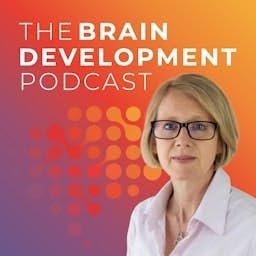In this episode of the Brain Development Podcast, Lara and Vicky discuss the recent controversial statements made by Trump regarding vaccines and the use of Leucovorin for autistic children. Vicky from the Healthy Happy Unicorn shares her insights on the complexities of autism and the multifactorial causes behind it, emphasising that while folate is essential for brain development, autism cannot be attributed solely to folate deficiency. The conversation delves into the potential risks of high-dose supplements like Leucovorin, the importance of understanding individual health conditions, and the need for personalised approaches to treatment. Vicky also highlights the significance of dietary interventions and the impact of genetic mutations on autism, encouraging parents to look beyond quick fixes and consider the unique needs of their children. KEY TAKEAWAYS Complexity of Autism: Autism is influenced by multiple factors, including genetic mutations, autoimmune conditions, and environmental factors, rather than being solely caused by folate deficiency. Leucovorin and Folate: Leucovorin, a form of folate, is sometimes recommended for children with cerebral folate deficiency, but it is not a one-size-fits-all solution and may not address the underlying causes of autism. Dietary Interventions: For children with cerebral folate deficiency, dietary changes, such as avoiding dairy, can be more effective than high-dose supplements like Leucovorin. Genetic Testing: Genetic mutations, such as those affecting folate receptors, can impact how children metabolise folate. Testing for these mutations can help tailor interventions but does not determine the cause of autism. BEST MOMENTS "I think it's amazing that there's this awareness now that autism is this condition that can be helped in several different ways." - Vicky "The healing process and the body... is very oversimplified and can be really misleading and confusing for parents." - Vicky "If we think about autism, it is caused by many, many compounding factors. It isn't just folate deficiency." - Vicky "When you put in a high dose of something like that, you're changing genetic expression. Is that helpful in terms of long-term health?" - Vicky SOCIAL/IMPORTANT LINKS https://www.tiktok.com/@braindevelopmentuk https://www.instagram.com/braindevelopmentuk/ https://www.linkedin.com/in/larakelly/ www.braindevelopment.co.uk HOST BIOLara Barnes a successful woman in tech found herself managing behavioural, learning and speech difficulties with her son, she learn functional neurology and how to change the brain to correct his symptoms and build his left brain. The Building the Brain Podcast is for parents needing to understand how to help their children and show them what can be done to change little lives to allow them to shine and be their best version. GUEST BIO Vicky is mum to her remarkable autistic daughter, Rose. With a BSc in Human Biology and a deep fascination with the human body, she was originally on track to become an NHS dietitian. When Rose’s needs became more complex, everything changed. Vicky immersed herself in learning about autism, neurodevelopment, and root-cause healing, a compassionate, whole-person approach that simply made more sense. From this journey, The Happy Healthy Unicorn was born, a space grounded in both science and heart, created for families seeking real answers and hope. Rose’s transformation inspired Vicky’s mission to help others. Combining science, lived experience, and deep empathy, she now guides families on their own healing journeys, empowering them to restore balance, support development, and unlock their children’s true potential. https://thehappyhealthyunicorn.com/ https://thehappyhealthyunicorn.com/1%3A1-virtual-consultations
続きを読む
一部表示
 28 分
28 分 28 分
28 分 22 分
22 分 31 分
31 分 31 分
31 分 35 分
35 分 44 分
44 分 29 分
29 分
